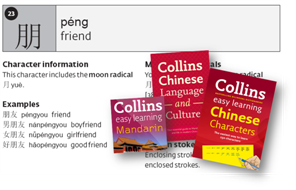A close friend once said to me that when you start learning a language, it’s like staring at a painting from really close: you can’t see much of it, and you can’t make sense of the little piece that you can. However, every time that you learn more, it’s like taking a step back, and gradually you understand how the first part fits into the wider picture. As you begin to see the whole painting, you can even start to appreciate its beauty.
This analogy has really stayed with me, and each time I learn a new language I feel myself having that sensation. This week it’s just started to happen with Chinese. In the second audio CD of the Easy Learning Mandarin Chinese course, you start to really build on the basics of the first CD, breaking up the phrases that you’ve learnt to use the words more widely, constructing more complicated, more useful sentences. I think in some ways this is the most exciting part of the learning process, as you shift up a gears and start accelerating towards speaking more naturally. As I’m starting to see the wider picture of Chinese, I’m discovering that it’s a fun language. I’m really enjoying practising the tonal system and pronunciation (although getting some strange looks on public transport), and there haven’t been any nasty grammar surprises yet. Next week I hope to be finished with the second audio CD and heading towards finishing off with the audio course so I can concentrate on the much more daunting task of reading and writing.



